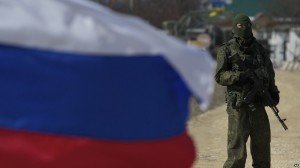Andrei Serbin Pont – The Responsibility to Legitimate: Russia, Georgia and Crimea
*Andrei Serbin Pont
In 2008 the August War, better known to many as the Georgia-Russia war, became the center of international attention. The Russian government was accused by the international community for its illegal actions, yet it was very astute in using terminology and discursive tools from concepts that had been advanced within the UN framework, such as the Responsibility to Protect, to legitimate its actions in Georgia.
The principle of Responsibility to Protect became mainstream within the framework of the United Nations with the report of the International Commission on Intervention and State Sovereignty (ICISS) titled “The Responsibility to Protect”. The document aimed at giving answers to questions regarding the role of the international community to react and reconciliate the respect for sovereign rights of States with the need to act in the face of mass human right violations and humanitarian rights violations focusing on the needs of the victims of the aforementioned violations, and the responsibility of States regarding these violations. The first instance of this responsibility falls on the State where these violations are occurring. And in the case of incapacity or refusal on behalf of the State to address such violations, the responsibility lies in the international community.
During the Georgia-Russia conflict, Russian Foreign Affairs Minister argued:
“Under the Constitution [the President] is obliged to protect the life and dignity of Russian citizens, especially when they find themselves in the armed conflict. And today he reiterated that the peace enforcement operation enforcing peace on one of the parties which violated its own obligations would continue until we achieve the results. According toour Constitution there is also responsibility to protect – the term which is very widely used in the UN when people see some trouble in Africa or in any remote part of other regions. But this is not Africa to us, this is next door. This is the area, where Russian citizens live. So the Constitution of the Russian Federation, the laws of the Russian Federation make it absolutely unavoidable to us to exercise responsibility to protect.”
The Russian minister was explicit in his use of terms such as “obligation”, “protection”, and “responsibility to protect”, clearly appealing to the terminology present in documents such as the ICISS report. The Russian government utilized this terminology to legitimate its actions in Georgia, although specialists on the subject such as Gareth Evans considered the concept to be inapplicable to the Georgia case.
According to Evans, there are three main reasons why the Responsibility to Protect did not apply to this case. The first is that the primary reason stated for intervention (to protect Russian citizens) was not the responsibility to protect rationale at all as it blurred the distinction between the responsibilities of a state to protect its populations inside its borders, and the responsibilities that a state maintains for populations outside its borders. Secondly Russia did not makea compelling case that the threat to the South Ossetian population was of a nature and scale as to make necessary or legitimate a military intervention. His third reason was the absence of the UN Security Council approval which deprived the Russian actions in Georgia of any legal authority for an R2P-based military intervention.
The recent intervention in Crimea adds a new example of this strategy being used by Russia, as it once again evokes terminology and concepts present in Responsibility to Protect to legitimize their military intervention. The Speaker for the Duma recently declared that President Putin is authorized to “use all available means to protect the people of Crimea from tyranny and violence”, while Foreign Affairs Minister Sergei Lavrovstated: “we are talking here about protection of our citizens and compatriots, about protection of the most fundamental of the human rights”.
Even though the Russian government attempts to legitimize its actions to the international community, and seeks some sort of legal support, the arguments presented by Gareth Evans in the Georgian case apply once again. Russia is acting under the premise of protecting its citizens abroad, has failed to demonstrate the existence of a real threat to such population, and no UN Security Council resolution has been approved authorizing military intervention. Yet the absence of solid legal arguments does not seem to bother the Russian government, as it emphasizesthe impact on public opinion that such discourse provides them. From this perspective, Russia has the winning hand, as some major media outlets are using the Crimea case to highlight the double standards of US foreign policy regarding international interventions.
Finally, we must point out what worrisome indicator this is for the strengthening of the principle of Responsibly to Protect worldwide, as it takes a negative toll on a concept hit by the Libyan and Syrian cases, as well as UN inaction in several African countries.
*International analyst and CRIES Research Coordinator specialized in foreign policy, defense, security and human rights.

